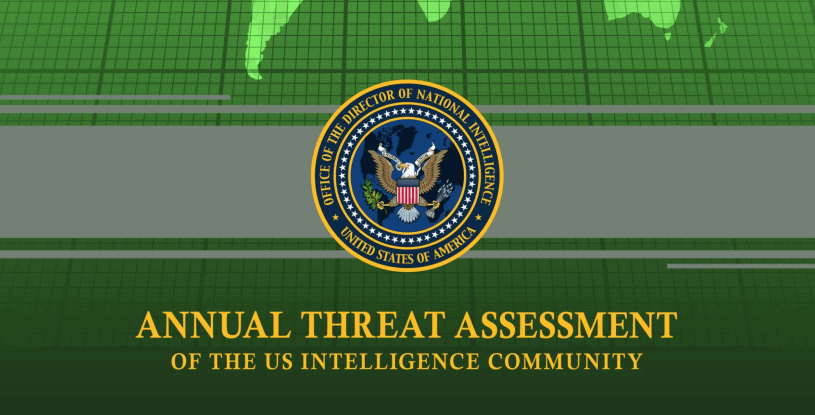The Annual Threat Assessment: A Return to the September 10 Mindset

They say a camel is a horse designed by a committee and the same can perhaps be said of the annually released threat assessment put out by the Director of National Intelligence (DNI) on behalf of the multiple entities that make up the “intelligence community.”
Critiques of specific sections of the latest threat assessment issued by the DNI are certainly not an indictment of the thousands of dedicated men and women that serve the United States in an intelligence capacity.
But by the time such an assessment sees the light of day, it is very far removed from the people who do the actual work of intelligence on America’s behalf. Both elected politicians and unelected bureaucrats play a key role in the negotiations to arrive at compromise language which is often imprecise, and which no participant fully supports.
Even assuming the good intentions of the majority of this country’s intelligence community, this report contains a sense of complacency about the possibility of a mass-casualty jihadist terrorist attack occurring in the U.S. that this country has not displayed since September 10th, 2011.
The possibility of a major terror plot is all but dismissed:
“US-based lone actors and small cells with a broad range of ideological motivations pose a greater immediate domestic threat. We see this lone-actor threat manifested both within homegrown violent extremists (HVEs), who are inspired by al-Qa‘ida and ISIS, and within domestic violent extremists (DVEs), who commit terrorist acts for ideological goals stemming from domestic influences, such as racial bias and antigovernment sentiment.”
Not only is this language dismissive of the possible threat of a major attack from jihadist groups, it continues a politicized narrative that claims the threat from so-called white supremacists and right-wing extremists is more significant than the global jihad. In order to do this the assessment minimizes a number of jihadist threats.
For example, the current assessment completely ignores evidence revealed by then-Secretary of State Mike Pompeo in January of Iran ongoing relationship with Al Qaeda. To completely ignore this relationship just 3 months after Pompeo briefed is bizarre and smacks of political bias. This wouldn’t be the first time the intelligence community deliberately downplayed Iranian threats for political reasons. Several years ago, as Center President Fred Fleitz pointed out at the time, a similar assessment about Iran’s nuclear program was clearly politicized and came to be widely disregarded.
The assessment minimizes the role of Al Qaeda in Africa, citing the terror group as making “some gains” in the Sahel region and Somalia, but “managing only limited operations in North Africa,” among other hot spots. In 2020 Al Qaeda’s East African affiliate Al-Shabaab was identified as the terrorist group’s “largest and most active global affiliate”.
In December of last year an Al Shabaab operative was arrested on charges of attempting to conduct a 9/11 style attack against the U.S. homeland, following flight training in the Philippines, a perfect example of the kind of mass casualty plot by jihadists that the ODNI assessment largely ignores.
The ODNI assessment also says next to nothing about regular occurrence of jihadist violence that European countries have faced, because of jihadists moving among populations of unassimilated migrants. Instead, the ODNI warns migration:
“fanned nationalist sentiments in many European countries. Countries are witnessing the rise of populist politicians and parties campaigning on loss of sovereignty and identity. Some European countries are trying to balance migration and COVID-19 concerns with the need for workers to supplement their aging workforces.”
In fact European politicians from both populist parties and mainstream parties have increasingly come to the terms with the need to respond to the threat.
When it comes to the assessment of the threat from global terrorism, this latest document demonstrates a distinct “September 10” mindset—a mindset that could well leave America vulnerable.
- President Trump Takes a Much Needed Step on Fentanyl - December 15, 2025
- Texas leads the way against the Muslim Brotherhood - November 25, 2025
- Defender of Freedom: Senator Jay Collins - August 4, 2025
